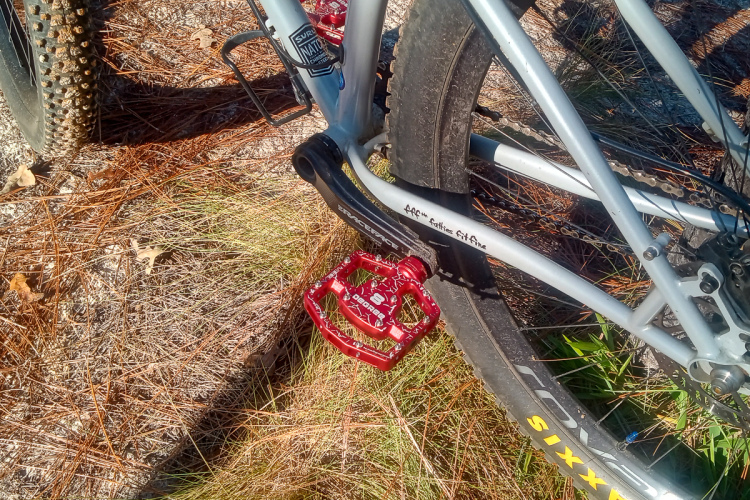
Editors note: The study referenced has been summarized to include the most prominent details for brevity. Please click over to the study to read in detail if you like. It should also be said that no single diet is best for everyone and results can vary.
The sport of mountain biking is not typically lauded for its simplicity. To ride, first you need a bike. Then a helmet, and the right shoes. Then you’ve got to get your bike to the trailhead. Oh and don’t forget water and snacks. You don’t want to bonk after all!
Usually the snacks we bring along or find in bike shops are high in carbs, as the macronutrient is our preferred energy source. Carbs are most easily broken down in the body and converted to energy. The longer the ride, the more likely we are to deplete our glucose and glycogen stores — converted carbohydrates which are stored in the liver and muscles — requiring us to take in more carbohydrates to keep ourselves going. It’s a vicious cycle if there ever was one.
The keto (short for ketogenic) diet has been around for a century, dating back to the 1920s when physicians introduced it as a treatment for epilepsy. As anti-epileptic drugs became available over time, the keto diet died out as a treatment method. Since then, athletes and dieters have resurrected it for other reasons. Over the past few years, keto has soared in popularity, striking interest in the low carb, high fat and high protein diet.
The premise behind keto is that as dieters transition from carbohydrates to more high protein and high fat foods, the body becomes more fat-adapted and instead of utilizing glucose or glycogen as a limited energy source that needs frequent stoking, we can dip into our vast reserves of body fat.
As cyclists, keto’s practicality sounds pretty good if not outright advantageous; less bonking, less food to pack for a ride, and more fat burning and weight loss. To find out a little more, I dug into some recent research and spoke with endurance coach extraordinaire Hunter Allen of Peaks Coaching.
Endurance athletes take on keto
A study published in the Journal of International Society of Sports Nutrition used a small sample size of five endurance athletes to study the effects of the keto diet on performance over ten weeks. Athletes participated in performance tests such as time to exhaustion and VO2 max and peak power tests. Participants were instructed to eat less than 50g of carbs per day, 1.5g of protein per kg of body weight, and “ad libitum fat,” or as much as desired. For reference, one cup of rice has about 45g of carbohydrates.
The study reported that athletes experienced reduced energy levels shortly after axing carbs.
Harvard Health Publishing reports that the “keto flu” is a common group of symptoms new keto dieters often experience in the form of headaches, irritability, nausea, or difficulty sleeping as they reduce carbohydrate intake.
After these feelings faded away, the athletes’ energy returned and they could exercise at a high level again, but felt they couldn’t take on high-intensity bouts of exercise as easily.
The athletes experienced ketosis — where your body converts fat to ketones for usable energy — by the end of week two, and were instructed to measure their blood ketone levels daily.
By the end of the ten-week study, the athletes shared similar results. They had an improved sense of well-being and reduced their body fat and weight. Even though they ate fatty foods, the researchers chalked the weight loss up to a calorie deficit. Participants ate less on keto, feeling more full with high fat and protein foods. People tend to lose water weight quickly after eating fewer carbohydrates as well.
Athletic performance was a little more complicated. “The performance decrement in our study and others is likely due to changes in metabolic pathways that impair glycogen metabolism at higher exercise intensities.” In other words, it seems the study suggests that as the exercise intensity ratchets up, it’s hard for the body to perform without glucose or glycogen and your body’s ability to utilize carbohydrates on keto at higher intensities may be inhibited for a period.
In practice
Hunter Allen with Peaks Coaching has seen similar experiences in athletes he’s coached. Allen has had five to ten athletes he’s worked with in the past who have tried keto diets. All of them had a rough transition from traditionally carb heavy endurance diets to almost no carbs at all.
“The riders have all gone through the same thing,” said Allen. “A two-week transitional period where they feel like crap, they don’t have a lot of energy, their body goes through this ‘what are you doing to me kind of thing,’ and then at the end of the two-week phase they start to feel better.”
He said the actual transition can take up to 4-6 weeks or even longer to become really fat-adapted. The reasons for his athletes’ diet experimentation included weight loss, more stable blood sugar levels, and higher energy levels.
For low to moderate-intensity exercise, Allen said keto tends to work great. As people increase their exercise intensity and reach the middle or upper tempo phase of the Coggan power levels chart, or 85-90% of their functional threshold power — your max power output for an hour in watts — it gets tougher to operate in ketosis.
“When we start to reach higher intensity levels at tempo and above, then that’s where we really start using glycogen and blood sugars as energy sources,” said Allen. “If you’re highly trained in burning fat – there are some really incredible athletes that can burn fat at around 80% of their FTP, which maybe the maximum intensity of burning fat, but more research needs to be done to be sure. Much above 80%, nearly everyone starts transitioning over to burning glycogen, or using the sugars that are in their bloodstream. That’s where the keto diet starts falling down.” Even for fat adapted athletes, it’s harder to exercise at high intensities without ready access to blood glucose or glycogen.”
Life after keto
All of the keto athletes Allen has worked with eventually transitioned back to a more carb-balanced diet for various reasons. Either they lost the desired amount of fat or they needed to shift from an aerobic base miles phase into a training program requiring high intensity workouts and needed more carbohydrates to perform. Even so, many of them reduced the amount of carbs they normally consumed and seemed to realize they might have been eating too many carbohydrates before keto.
“To me, endurance cyclists are very carbohydrate addicted,” said Allen. “We use a lot of carbohydrates. We eat a lot of carbohydrates, and I think that [we] probably eat too much. And I do think that a lot of us [endurance athletes] would benefit from being more fat-adapted, and having a lower percentage of carbohydrates. We need enough carbohydrates where you can still recover and you can do your intense workouts, so it makes sense on those days you really need to have them, you eat carbs.”
Allen mentioned he often uses fat adaption programs for pro U.S. cyclists who move to Europe to compete since the courses are often longer. If they can become more fat-adapted, they can get through a longer portion of the race without fueling and start to use carb sources halfway on in the race.
Still, for the majority of us, losing weight comes down to math, said Allen. There are 3,500 calories in a pound of fat. Eat 500 calories less per day and that puts someone on track to lose a pound in one week. “If you want to lose weight, to me it’s purely a math equation.”













8 Comments
Feb 8, 2022
Feb 10, 2022
Glad to hear that keto is working for you. Sounds like becoming more fat adapted is a win either way, even if you're not going full keto.
Feb 8, 2022
Feb 10, 2022
I think you mean just enough carbs so you don't go into "ketosis", which is what I've been doing for 5+ years. I don't try to go so low on carbs that I stay in ketosis although sometimes I am in ketosis. I basically just eat less carbs, particularly those starchy simple carbs like breads and potatoes and sugar is the big one. I avoid added sugar as if it's poison.
I'm 5'11" and dropped from 220lbs to 185lbs quickly on a strict low carb diet in about 3 months, then over 6 months dropped down to 175lbs. From there I have maintained 185, sometimes a little less sometimes a little more for around 5 years just avoiding those simple carbs.
I definitely agree with the article that you have more stable long sustained energy without crashes but lack that high intensity short burst energy if you are too low on carbs.
Feb 10, 2022
Thanks for the clarification :)
Feb 7, 2022
I agree, most of us in the West eat too many carbs and we would all benefit from lowering our carb intake.
On the flip side. I rode in Bandung Indonesia a couple of years ago with some riders during Romadan. These guys put in 30 miles offload without food or drink. Pretty amazing.
Feb 8, 2022
Feb 10, 2022